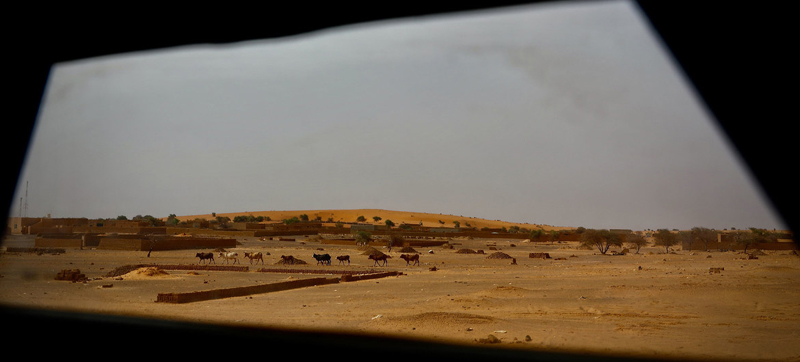 Mali
Mali Rights experts condemn ‘dramatic rise’ in attacks on so-called slaves in Mali
New York: Attacks against so-called slaves in Mali are on the rise and authorities must do more to prevent them, two independent UN human rights experts said on Monday.
Although Mali outlawed slavery in 1905, a system of “descent-based slavery” persists, where some people are considered slaves because their ancestors were allegedly enslaved by the families of so-called masters.
Attacks ‘unacceptable’
People born into slavery work without pay and are deprived of basic human rights and dignity, the experts said.
Those who reject the “slave” designation and try to stand up for their rights, as well as anti-slavery organizations, are regularly violently attacked by traditional or religious leaders and their allies, who sometimes include State authorities
Alioune Tine, UN independent expert on the human rights situation in Mali, said systemic attacks against so-called slaves are “unacceptable and must stop immediately.”
Furthermore, these assaults “are incompatible with an inclusive society and we condemn them in the strongest terms,” added Tomoya Obokata, the UN special rapporteur on contemporary forms of slavery.
‘Gross failure’ to protect
The experts were responding to an attack on 4 July in which people from Makhadougou village, located in the eastern Kayes region, used machetes and rifles to prevent so-called slaves from working their fields.
Twelve people were injured, including three women, who were not involved in the clash, who were hit by stray bullets inside their homes.
So far this year, 62 people – 57 men and five women – have been injured in violent clashes in the Kayes region, while 80 have fled their homes. Twice as many people – mostly so-called “descent-based slaves” – have been injured this year, as in 2020.
“The dramatic increase in attacks this year shows the Government’s gross failure to protect its people, particularly those who already suffer most from discrimination and violence,” they said.
Hold perpetrators accountable
Last September, the UN experts issued a statement condemning similar “barbaric and criminal acts”, and urged Mali to end slavery once and for all. They also called for “a prompt, transparent, impartial and thorough investigation” into attacks in the Kayes region.
“It is deeply worrying that no one has been prosecuted in connection with attacks last year,” they said. “The Government’s failure to hold pro-slavery perpetrators accountable sends a shockingly disturbing signal. Traditional and religious leaders who condone these violent attacks must also be held accountable.”
Criminalize slavery call
The UN experts renewed their call for Mali to urgently adopt a law specifically criminalising slavery. A “change of attitude” throughout society is equally as important, they added.
“It is indispensable to leave the heritage of descent-based slavery behind and to recognize that all Malians are entitled to all the rights and freedoms set forth in the Universal Declaration of Human Rights and the African Charter on Human and Peoples' Rights,” they said.
“For Mali to move forward, there must be a recognition that all Malians – like everyone else on this planet – can expect and demand certain rights simply because they are human beings. There should be no discrimination based on race, colour, sex, language, religion, political or other opinion, national or social origin, property or birth.”
Role of UN experts
Mr. Tine and Mr. Obokata were appointed by the UN Human Rights Council and are part of its independent fact-finding and monitoring mechanisms which address either specific country situations or thematic issues all over the world.
They work on a voluntary basis and are not UN staff, nor are they paid by the Organization.
Support Our Journalism
We cannot do without you.. your contribution supports unbiased journalism
IBNS is not driven by any ism- not wokeism, not racism, not skewed secularism, not hyper right-wing or left liberal ideals, nor by any hardline religious beliefs or hyper nationalism. We want to serve you good old objective news, as they are. We do not judge or preach. We let people decide for themselves. We only try to present factual and well-sourced news.







